Sonia Cheng on Rosewood Expansion, Food Curation and Members’ Club Carlyle & Co.
- Oops!Something went wrong.Please try again later.

Under the leadership of chief executive officer Sonia Cheng, the ultra-luxury Rosewood Hotel Group is managing to make a name for itself in the competitive luxury hospitality landscape, and expand into major cities like Beijing, Hong Kong, London, Paris and Abu Dhabi with a busy pipeline leading toward 2030.
“Rosewood was a very well-respected brand before we acquired it, but mainly in the U.S., so it didn’t have any global awareness and recognition. And it was fairly traditional. However, having said that, they had a great brand philosophy — a sense of place,” says Cheng.
More from WWD
“Because of that philosophy, every hotel continues to have its own personality…A lot of other hotel brands have grown to become very big and in order to cope with the growth, they developed a cookie-cutter approach in their way of developing experience, design and concept,” she adds.
Founded by American oil heiress Caroline Rose Hunt in 1979, the company was sold to New World Hospitality for $229 million, along with five of the properties that were sold for $570 million in 2011. New World Hospitality was rebranded as Rosewood Hotel Group in May 2013.
Cheng’s family controls the Rosewood Hotel Group via the privately owned Chow Tai Fook Enterprises. It is also the parent company of the publicly traded New World Development, and Chow Tai Fook Jewellery Group, where Cheng serves as executive director and vice chairman, respectively. Many of the Rosewood hotels, particularly in China, sit inside New World Development properties.
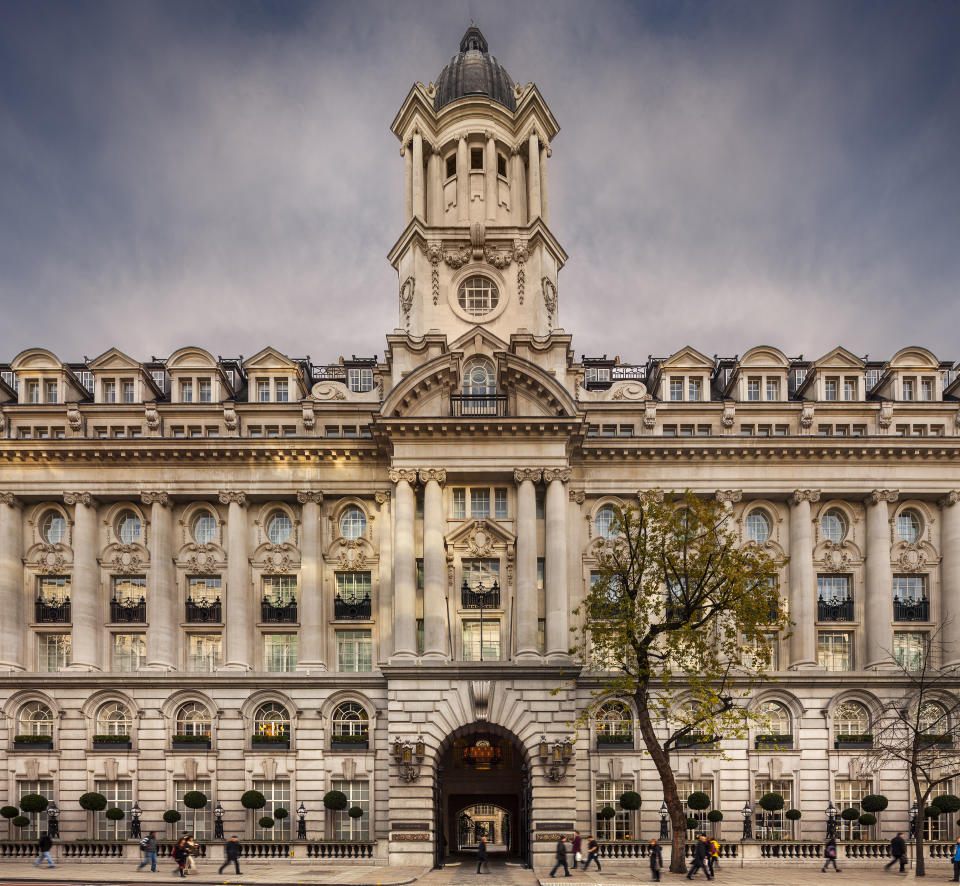
Cheng believes adding the Asian experience to this global platform can be transformational for the brand image, and the first project to prove her point was Rosewood London, which opened in 2013.
“The hotel is situated in High Holborn, right next to Covent Garden. It’s not your predictable luxury location like Mayfair, so prior to opening there was always skepticism about whether this location or this property could be considered luxury and attract that clientele,” she says. “My belief is that if you are able to create an amazing concept within the hotel, and to build destination restaurants that can attract the locals, you can build a community no matter where you are.
“At that time, people were like: ‘You’re the new kid on the block, you will not be able to achieve the rate that you’re looking for.’ But within a few months of opening, we became a rate leader,” Cheng continues. “And yes, we don’t have the loyalty program or the network that some of the bigger brands have. But when you get the design and concept right, you really resonate with the next generation [of luxury travelers.]”
With that mentality, Cheng expanded the Rosewood portfolio to include 30 hotels in 18 countries and regions as of 2023, and is planning to almost double that number in the next decade, with 28 new locations in major cities like Milan, Rome, Amsterdam, Shanghai, Seoul, and San Francisco, and resort destinations like Japan’s tropical island Miyakojima, Riviera Nayarit in Mexico, and the Maldives.
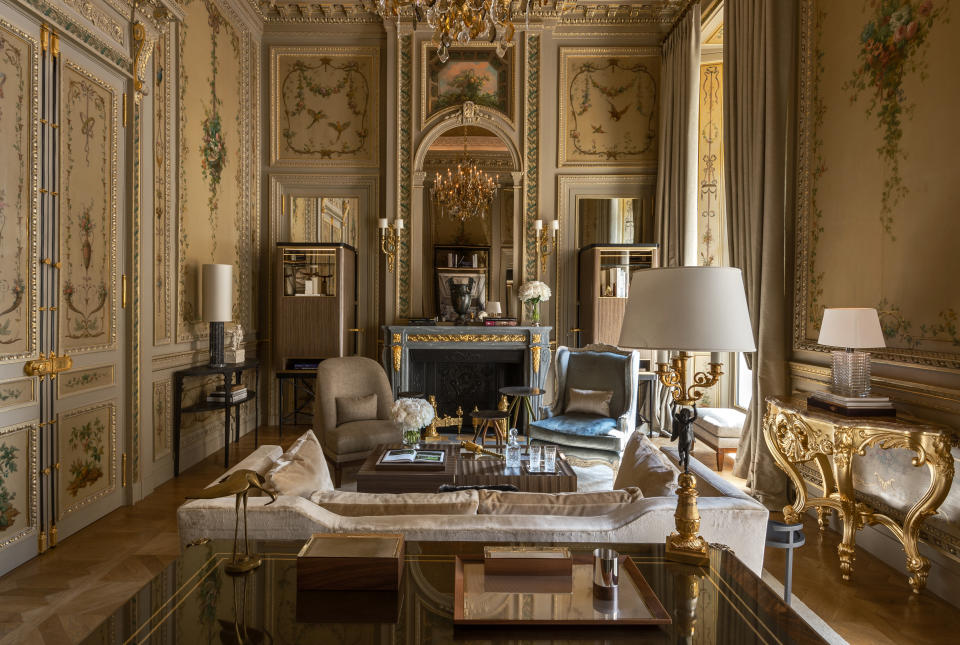
Many of these Rosewood hotels have become institutions in their own right within each of the city’s cultural and hospitality scenes. Rosewood London and Hôtel de Crillon, a Rosewood hotel in Paris, have carved out their respective niches in arguably some of the most competitive high-end hospitality markets in Europe.
The Carlyle, a Rosewood hotel in New York, which has been owned by Rosewood since 2001, meanwhile, is at the heart of each year’s Met Gala alongside The Mark Hotel. Celebrities leaving the hotels now create a media moment almost equal to the red carpet of the fashion fundraiser itself.
“Celebrities and royals have been coming to stay with us for the longest time, so the team there is very well-versed in terms of understanding their needs and catering to their needs. So it’s really nothing new for them. And we renovated The Carlyle last year. Now it’s really a reimagined gem in town,” Cheng says.

Rosewood Hong Kong, a flagship of the Rosewood brand with Victoria Harbour at its doorstep, opened in 2019 and has become a popular hangout spot for foodies owing to its range of culinary options. It’s also a go-to spot for young couples to get married; not to mention fashion brands like to accommodate their guests there whenever there is a major event in town.
“A lot of luxury hotels just do a French or Italian restaurant, but half of the time it’s empty. I’m a huge foodie and me being a Hongkonger and knowing the food community and how foodies behave, we deliberately wanted to offer cuisines that people like and are curious about and making it a destination and making it less fussy and more energetic,” she says.
Cheng loves the “wow” factor when hotel guests learn that the most difficult-to-book place is Chaat, a Michelin-starred Indian restaurant, even though the hotel offers more than 10 other dining options, ranging from Italian and Cantonese to American grill and Mediterranean pescatarian cuisines.
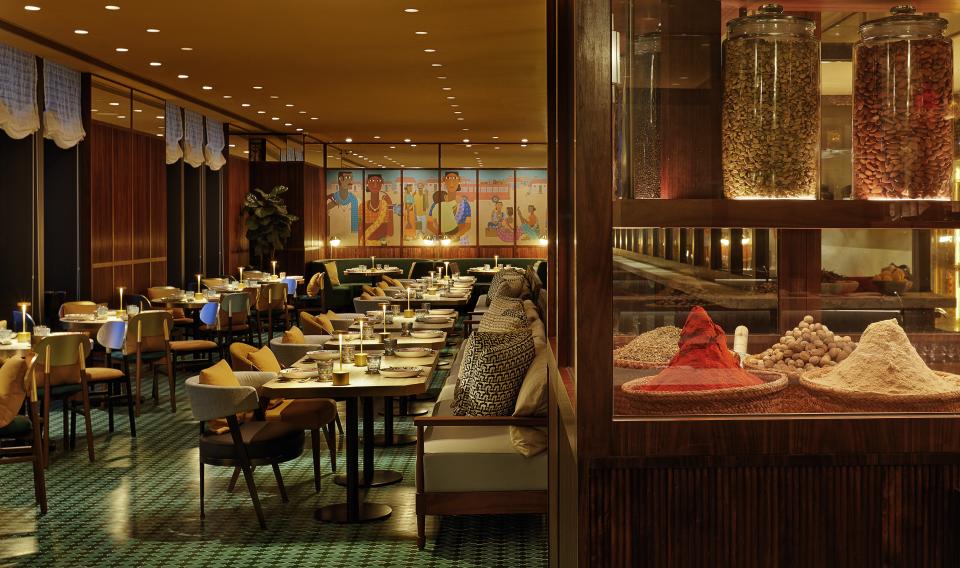
“No one actually thought about that a sense of place can mean us digging deep down into Hong Kong’s history and is expressed through some of these culinary [concepts] that no one expects. Indian cuisine is one of them. There’s a huge Indian community in Kowloon because of its history with the British colony,” she adds.
Cheng curated the Rosewood Beijing restaurant mix with the same approach. The Beijing outpost is located next to the iconic CCTV headquarters, with a breathtaking view of Beijing’s central business district.
“We looked at local cuisine, but we want to make it chic and take a much more contemporary approach. So that’s why we introduced Red Bowl, a hot pot concept, and Country Kitchen, which is a modern take on northern Chinese cuisine. And it really worked. People are lining up just to go to those restaurants,” Cheng claims.
But great food aside, exactly what is the Rosewood aesthetic? A touch of Asian hospitality and a modern take on local culture can’t be the only factors since that approach has also been adopted by predecessors like the Peninsula, Shangri-la, and Raffles worldwide.
Cheng says she can’t really explain how she and her team get there, but “I’m very particular with my kind of design vision, and I build a team around me that share that vision.”
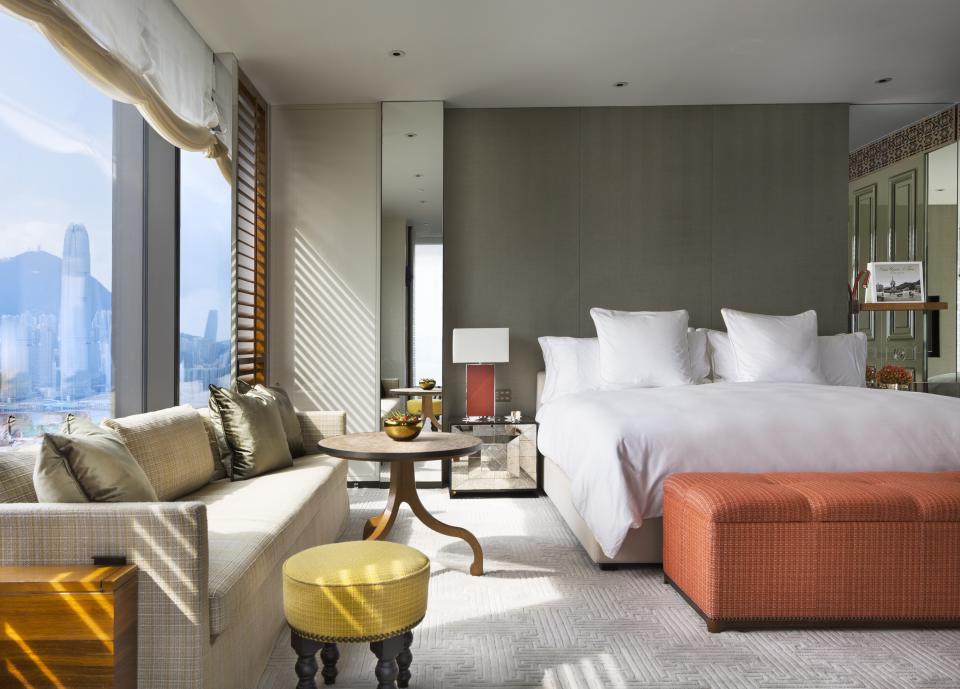
“Every time we build a hotel, we explore new designers that get what we’re looking for and are able to execute and celebrate the sense-of-place philosophy with a modern contemporary and chic approach,” Cheng continues. “I think the thing with Rosewood and constant feedback for people is that it’s not just a hotel — it’s the place to be. You almost feel like ‘I want this design in my home.'”
She insists Rosewood isn’t looking to attract those who are simply looking for “a safe, predictable luxury hotel.”
“There are a lot of those out there,” Cheng says. “Our customers are curious and want to experience, discover, learn something new, and see what Rosewood is doing next. We are able to resonate with those customers through our approach to design, the way we create our concepts on culinary experience, wellness, and Carlyle & Co., our private members’ club. All of these combined, you feel that Rosewood is on the pulse with the trend.”
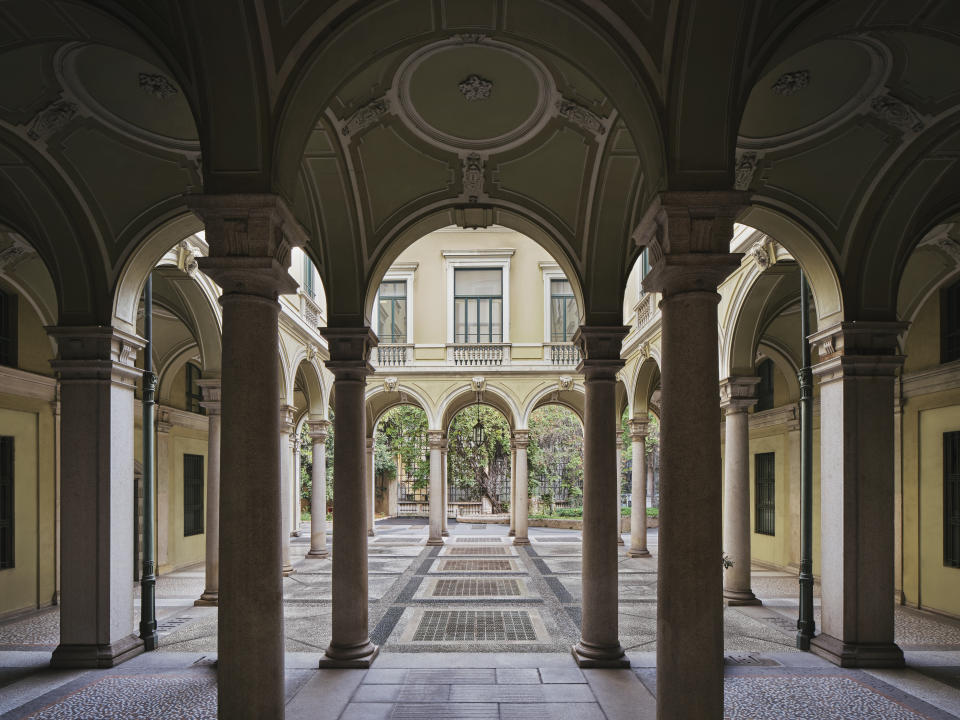
Among the developments in the pipeline, she singles out the ones in Milan, the second London location near Grosvenor Square, and Shanghai as future milestones.
Opening in 2025, Rosewood Milan will take over the historic Palazzo Branca and Palazzo della Banca Commerciale, which are located on the edge of the city’s famous Quadrilatero della Moda.
“It’s a very good location. It’s steps away from the shopping district. It’s a historic building, formerly home to the Italian commercial bank. We have an amazing designer overseeing the design with 70 rooms. It has a beautiful courtyard,” Cheng says. “I feel that the hotels in Milan right now aren’t that impressive. What we want to provide, really, is something unique, more intimate and again, a gathering place for people. Also given Milan is one of the four fashion capitals, maybe we will work with different fashion brands in our partnerships to enhance the experience.”
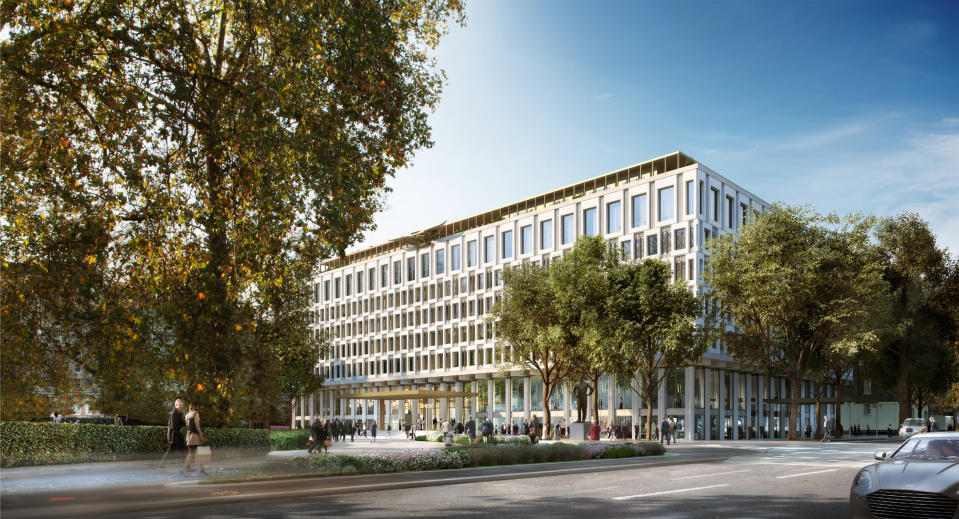
With regard to The Chancery Rosewood in London, which is being developed on the former site of the American Embassy — with the majority part of the facade of the Grade II listed building being preserved — Cheng promises that it will be a “super exciting” addition to London’s hotel scene by 2025.
“There’s a lot that we are looking at in terms of experience for that project,” she says. “In terms of room size, it will be one of the largest in the city. We would have amazing suites and an array of restaurants that are different from Mayfair’s current food scene. We will have a relatively large wellness area as well. We’re also talking to different retail brands and looking at partnership opportunities.”
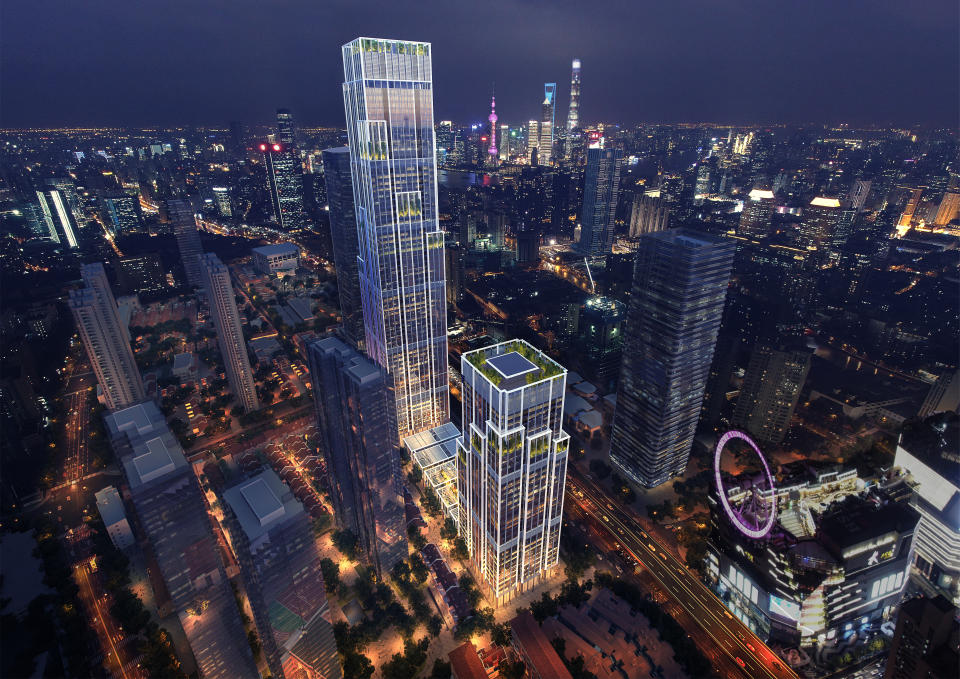
Rosewood Shanghai will occupy the top floors of a 320-meter-tall building in the neighborhood of Suzhou Creek, which offers a wonderful view of the Bund and is within close proximity of other trendy areas. Previously, it was speculated that the hotel would be built around the downtown area of Xintiandi, where Rosewood’s affiliated company New World Development is working on two high-profile mixed-used projects.
“We believe Suzhou Creek really is an up-and-coming location,” Cheng says. “Even from when we signed the contract till today, it has changed substantially. There are a lot of developments around the area. It’s really close to the Bund. We have a partner who is very committed to making it anchor this area. We are confident by 2028, it’s going to be one of the key hubs in Shanghai.”
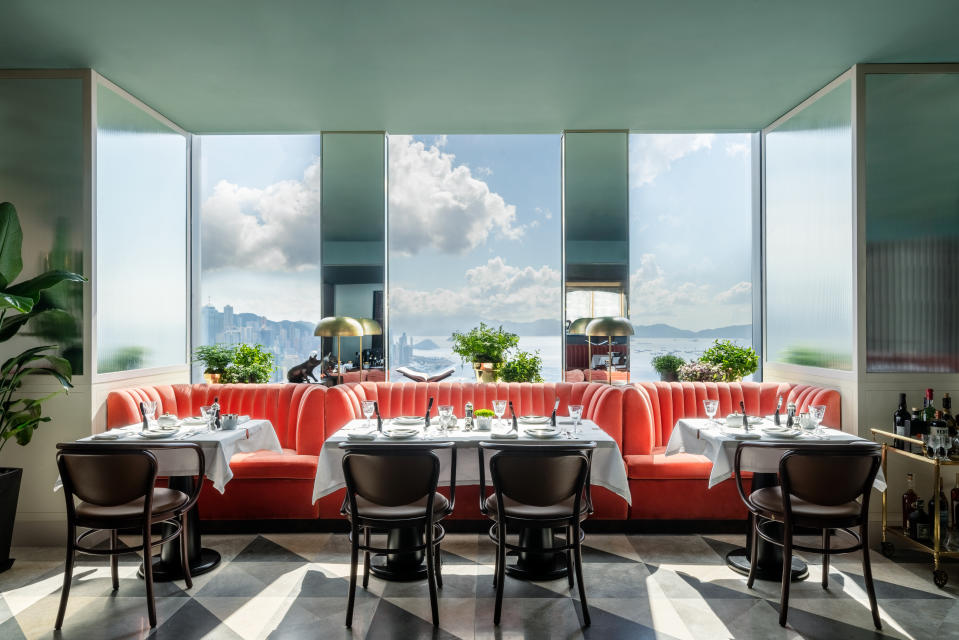
Cheng is also planning to roll out the Carlyle & Co. members’ club concept to more Rosewood locations outside of Hong Kong in a strategic and exclusive manner. Despite it being launched only last year and costing 118,000 Hong Kong dollars, or $15,000, as a joining fee and a recurring 2,400 Hong Kong dollar monthly charge, the waiting list for the exclusive club is long, according to Cheng.
Further down the line, Cheng is looking for the right locations to bring Rosewood to Tokyo and Australia, as well as other parts of Europe and the U.S.
“In addition to the hotel side, we’re also expanding on Rosewood Residences, which is going to be very important for us,” she adds. “We are giving our audience a different type of flavor of Rosewood.”
Best of WWD

